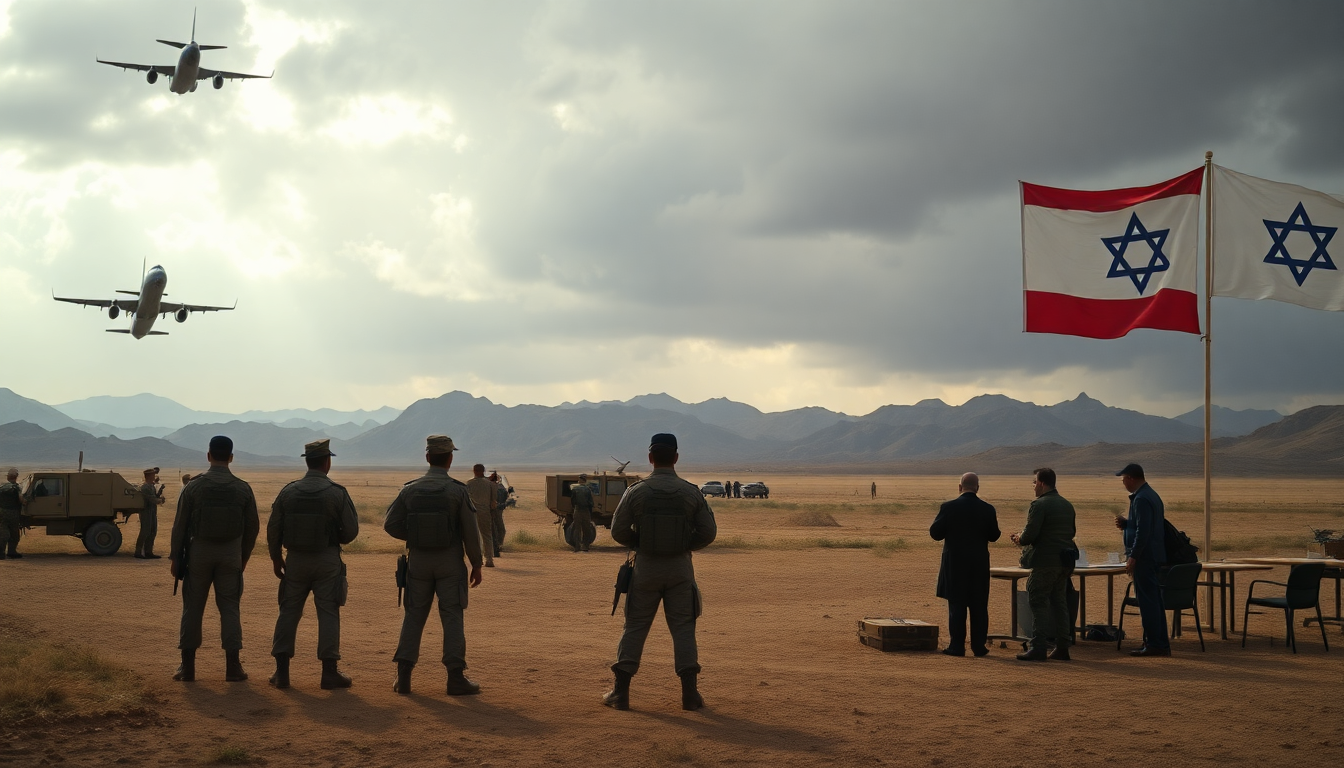Table of Contents
When chaos reigns and the world seems one hair-trigger away from total disaster, what’s the best course of action? Apparently, it’s to send in more military assets. British Prime Minister Keir Starmer is strutting around, announcing troop buildups in the Middle East like it’s a game of chess. Meanwhile, the German Foreign Minister, Johann Wadephul, is practically begging Iran and Israel to sit down for a chat about de-escalation, as if that’s going to solve anything. But hey, who needs solutions when you have a stage to perform on?
Escalation or Containment?
Starmer’s recent statements drip with a sense of urgency, as he declares, “We are moving assets to the region, including jets.” What does that even mean? Is he trying to impress someone? Or is this just a desperate attempt to flex muscle in a situation that’s spiraling out of control? Let’s not kid ourselves; this isn’t about peace. It’s about posturing, power, and the sweet taste of military might. And while he’s at it, he’s chatting up world leaders like a social butterfly, sharing fears of escalating conflict as if they’re trading gossip over tea.
The only way is up, right?
In the midst of this mess, Iranian media is tossing out threats like confetti, warning the U.S., U.K., and France that they better think twice before defending Israel against Iran’s retaliatory strikes. So, where does that leave us? In a quagmire of military threats and political posturing. As Starmer himself acknowledges, “We do have long-standing concerns about the nuclear program that Iran has,” it’s almost laughable how he tries to balance that with recognizing “Israel’s right to self-defense.”
The circus continues
And here comes the climax of this absurd theatre: missiles flying, countries posturing, and the U.S. and U.K. barely lifting a finger to help their so-called ally. Remember when they jumped in to shoot down missiles last year? Yeah, not this time. The American leader, in a moment of self-importance, quips, “we can easily get a deal done.” Really? Because right now it feels like they’re just throwing more gasoline on the fire.
Germany’s half-hearted attempts
Wadephul’s call for talks sounds noble, doesn’t it? But let’s face it, the chances of those talks going anywhere are about as likely as a snowball surviving in hell. Germany, along with France and Britain, is waving the olive branch, but will Iran accept it? It’s hard to believe when both sides are locked in a deadly dance, each refusing to be the first to step back. Wadephul’s optimism is almost endearing, but let’s not kid ourselves—this is a dangerous game.
A humanitarian crisis unfolds
And while world leaders squawk about restraint, the humanitarian crisis in Gaza is reaching levels that are nothing short of catastrophic. European support for Israel is waning, and who can blame them? After witnessing the fallout from the October 2023 attacks, the world is left grappling with the reality of a conflict that has now dragged on for nearly two years. Yet here we are, watching as the powers that be play their little games, seemingly oblivious to the human cost of their decisions.
Final thoughts
So, as we head into yet another G7 summit where the Iran-Israel conflict will undoubtedly be a hot topic, one has to wonder: will anything meaningful come from it? Or will it just be another round of empty promises and hollow speeches? At this point, it feels more like a circus than a serious diplomatic effort. And as the world holds its breath, waiting for someone to step up and do the right thing, we’re left with one nagging question: how much longer can this spiral of violence continue before it engulfs us all?


